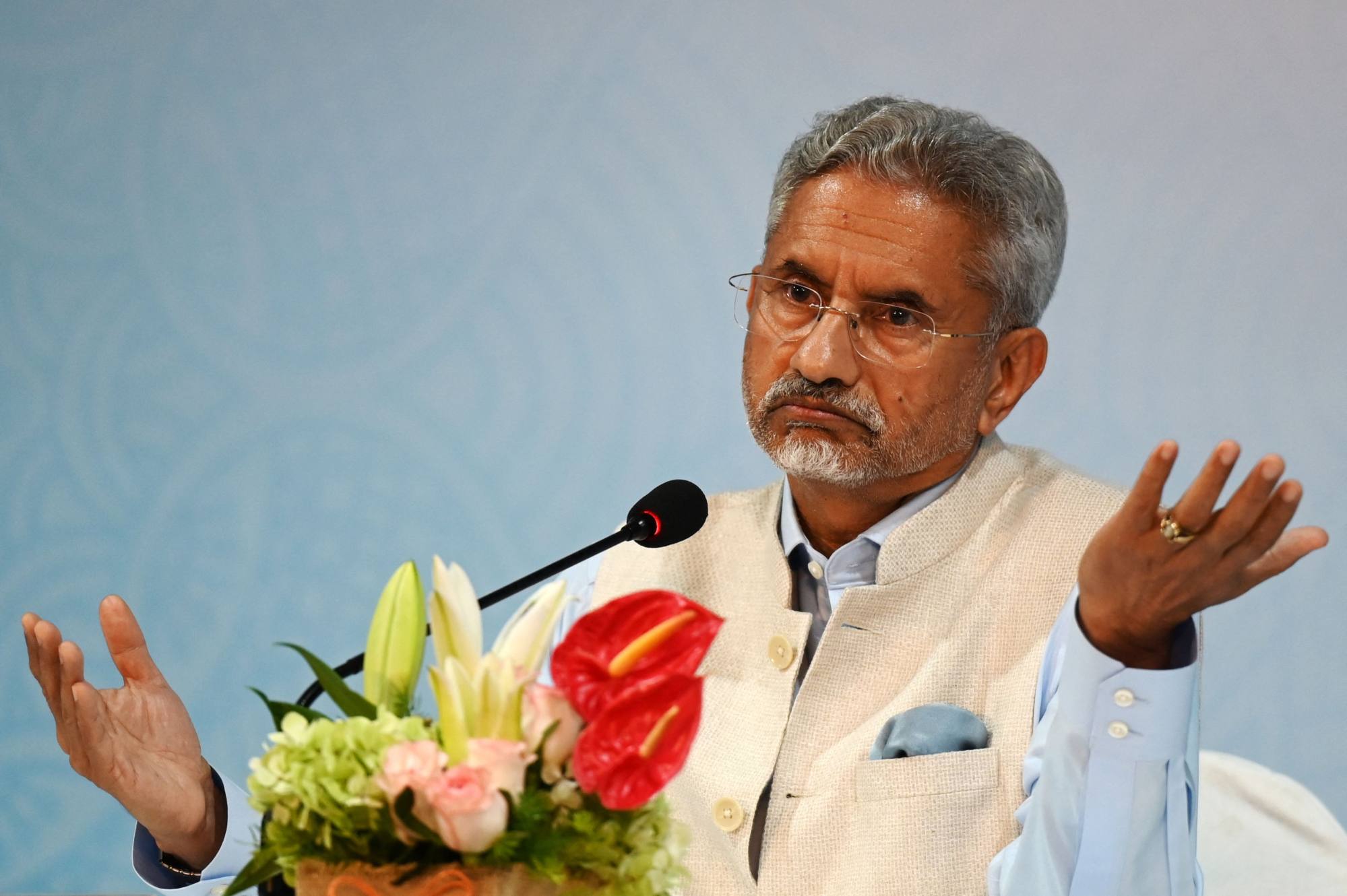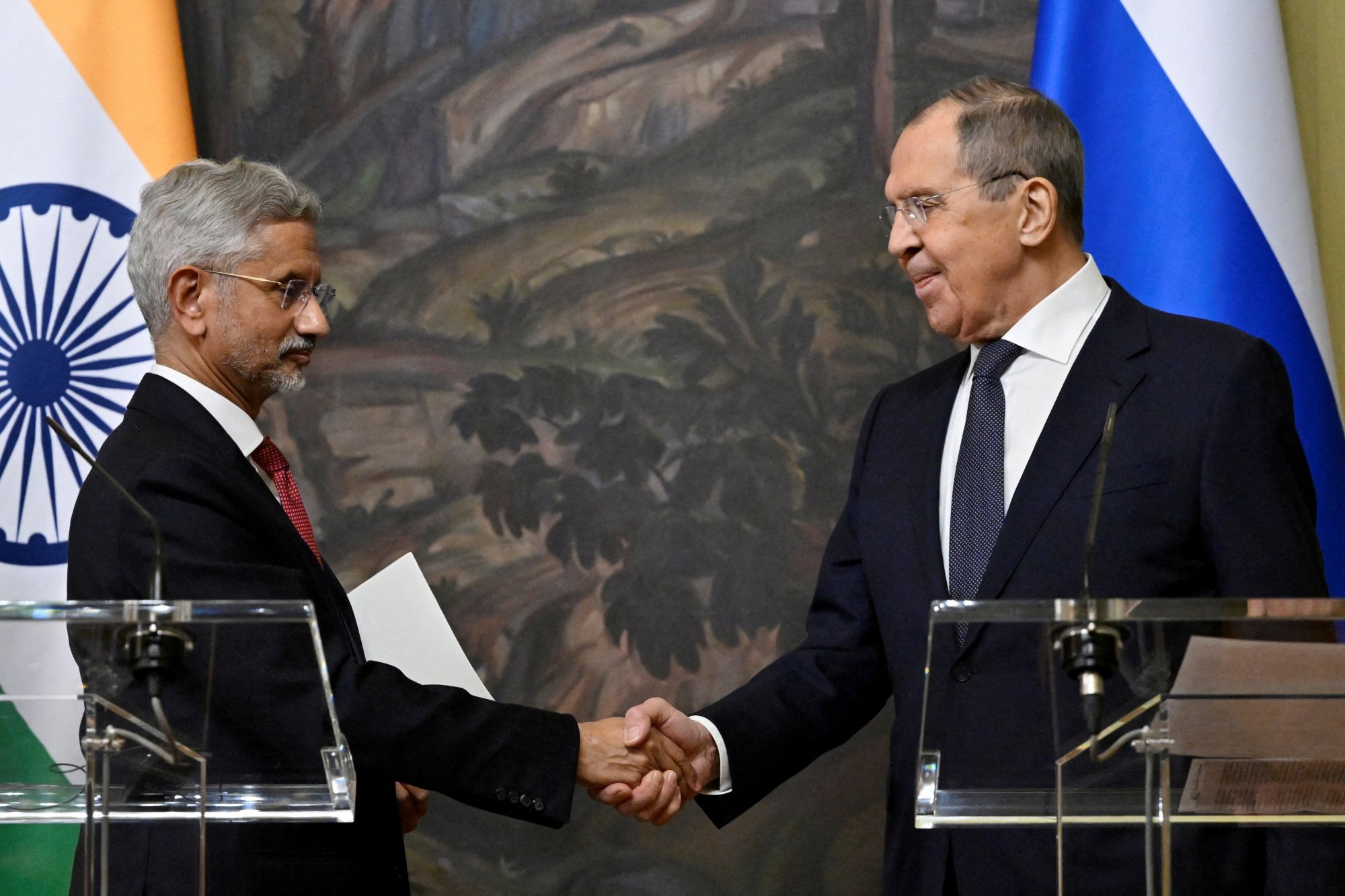[ad_1]
Another occasion that mirrored India’s misfit within the Quad, sarcastically, was Foreign Minister Subrahmanyam Jaishankar’s speech on the inaugural Quad Think Tank Forum.
He claimed the Quad mirrored “the growth of a multipolar order”, “post-alliance and post-Cold-War thinking”, was “against spheres of influence”, “expresses the democratising of the global space and a collaborative, not unilateral, approach” and “is a statement that in this day and age, others cannot have a veto on our choices”.

Had he blended up his notes for the Quad discussion board with these for a Brics gathering? (It wouldn’t be the primary time an Indian overseas minister has blended up his notes.)
Jaishankar’s declare that the Quad mirrored these values is at odds with how the opposite three members perform and even envision the world order. Paradoxically, his claims match neatly into the agenda of a grouping like Brics.
First, whereas multipolarity is championed by nations of the Global South, together with China, India and Russia, neither Japan nor Australia arguably does, and the US positively doesn’t.
Finally, regardless of requires democratisation of the worldwide area by nations corresponding to South Africa, China and Brazil – significantly in multilateral establishments and the sanctions regime – the Western world seems in no hurry to surrender the privilege of unilateral motion. On the opposite, Western powers have pressured nations to affix their unilateral sanctions on Russia.
It is really tough to see how the Quad displays Jaishankar’s claims, which align extra naturally with the causes of the Global South.
South Korea is showing up India’s ill fit as a US ally and Quad member
South Korea is showing up India’s ill fit as a US ally and Quad member
At the Raisina Dialogue, “China loomed over everything, of course, but was rarely named”, famous Ian Hall, a professor of worldwide relations at Australia’s Griffith University, who attended. As Jaishankar stated on the dialogue: “People say that the Quad is directed against somebody. And it struck me that yes, you know, all four of us have had problems with the UK.”
Despite sanctions in opposition to Russia imposed by its fellow Quad members, India continues to advocate for Russia to broaden its partnerships with Asian nations and for Moscow to be given “multiple options”.

Clearly, India just isn’t transferring in the direction of the West. For Western nations to align themselves with India’s realpolitik would require a drastic tailoring of their method to world affairs – a extremely unlikely transformation.
India will proceed to straddle completely different camps. Russia stays a steadfast associate, most not too long ago coaching Indian astronauts for Gaganyaan, India’s maiden area mission. Across the world, there are just a few teams the place India’s attitudes and imaginative and prescient for the worldwide order are shared by most members, if not all. Brics is one, I2U2 might be one other if one reductions the US. But the Quad is actually not.
Akhil Ramesh is director of the India Programme and Economic Statecraft Initiative on the Pacific Forum
[adinserter block=”4″]
[ad_2]
Source link
